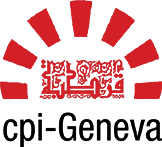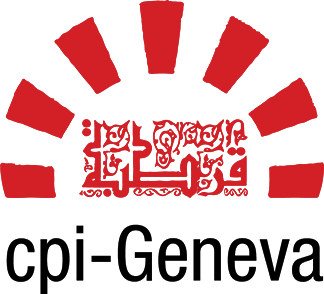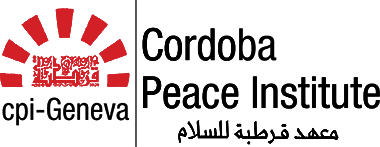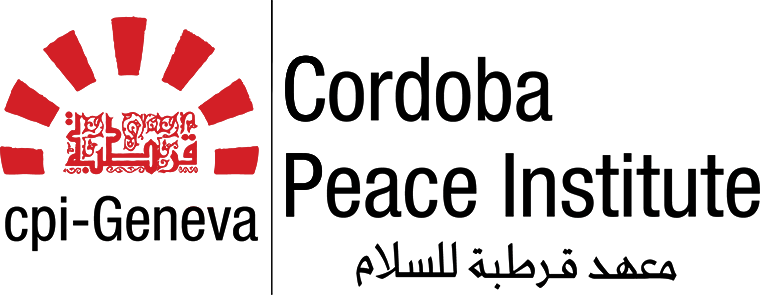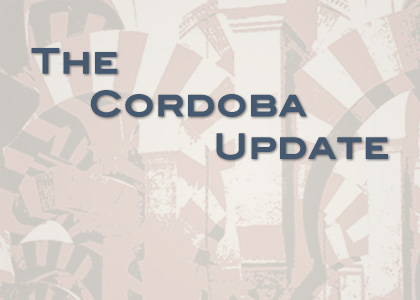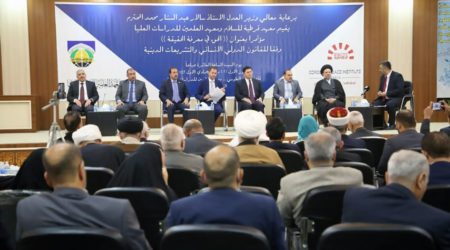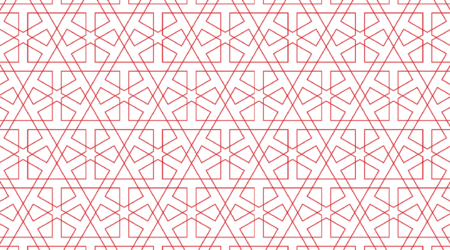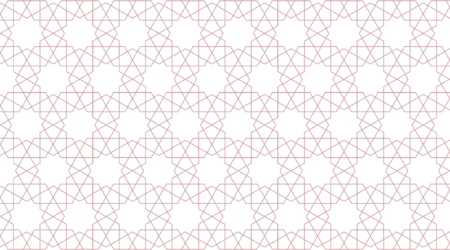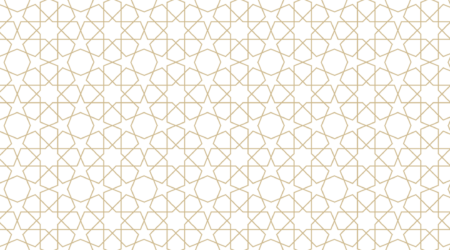The Cordoba Update 11/2016
|
The bi-weekly CORDOBA UPDATE is the product of continuous monitoring work, carried out by the Cordoba Foundation of Geneva team. By analysing and reporting on key events and trends in the Foundation’s areas of interest, we aim to draw readers’ attention to pertinent developments in North Africa, the Sahel, West Asia and Europe, which are not always covered in ‘mainstream’ media. In addition to sharing news from these four regions, the Cordoba Update is an opportunity for the Foundation to provide regular updates on its publications, events and other developments. In line with the programmes and projects funded by partners of the Cordoba Foundation of Geneva, updates and information are included under the following themes:
For questions and/or feedback regarding the content and form of the Cordoba Update, please contact Sarah Franck: sarah.franck@cordoue.ch Le CORDOBA UPDATE est un bimensuel qui présente le travail continu de suivi réalisé par l’équipe de la Fondation Cordoue de Genève. Par l’analyse des événements et tendances qui concernent les domaines d’intérêt de la Fondation, nous visons à attirer l’attention de nos lecteurs sur les développements pertinents en Afrique du Nord, dans le Sahel, en Asie de l’Ouest et en Europe, une actualité qui n’est pas toujours couverte dans les médias dits ‘traditionnels’. Outre le partage de l’actualité de ces quatre régions, le « Cordoba Update » est un moyen pour la Fondation de fournir des mises à jour régulières sur ses publications, événements et autres développements. En accord avec les programmes et projets financés par les partenaires de la Fondation Cordoue de Genève, les mises à jour et informations concernent les thèmes suivants :
Pour des questions et / ou des commentaires concernant le contenu et la forme du Cordoba Update, veuillez contacter Sarah Franck : sarah.franck@cordoue.ch |
ISLAMIST-SECULAR RELATIONS / RELATIONS ENTRE SÉCULIERS ET ISLAMISTES
Morocco, 24-25.05.2016: Legislation and Activism for Women’s Rights
Women’s rights in Morocco have often been translated into an issue that provokes tension between the so-called Islamist and Secular camps. Some observers say that, because Morocco is a devout country, « the debate amongst human rights elites on women’s rights has often been highly polarized, pitting religious against secular, » despite the fact that studies have found that this often oversimplifies the realities of the general Moroccan population.
Recently, the Moroccan comedian and feminist activist, Mounia Magueri, created a video on violence against women in collaboration with Human Rights Watch (HRW). The video depicts the different reactions of four characters to the issue of domestic abuse: a victim of domestic violence, an abusive husband, a police officer, and a public prosecutor, and aims to demonstrate diverse attitudes towards the issue. According to HRW, « the arguments put forward by the different characters are derived from, and closely reflect, the findings and testimonies of Human Rights Watch’s research on domestic violence in Morocco. » Magueri’s video suggests that people in Morocco may point to society, tradition and culture when explaining contemporary attitudes towards cases of violence against women in the country. This may partly explain the reason why this issue is often described as a point of debate between so-called Islamists and Seculars, although both sides of the argument see violence against women as a product of a Moroccan « mentality » that tolerates such actions.
A national survey in 2009-2010 published that 63% of Moroccan women aged 18 to 65 have experienced forms of violence (including physical, psychological, sexual or economic). With such an elevated rate of incidence (the global average is 33%), the issue of violence against women is clearly not confined to one part of Moroccan society, but is indeed widespread.
Magueri’s video has highlighted these critical issues by means of a social media campaign directed at the Moroccan Minister of Women and Family, Bassima Hakkaoui, with the Arabic hashtag الحقاوي_عطيني_حقي#, meaning « Hakkaoui: Give me my rights. » Although the Moroccan government has taken steps on protecting women from violence (including the establishment of committees to raise awareness on the topic and the re-establishment of a national observatory on violence against women), it has also debated new legislation on violence against women for the past three years, « with frustratingly little progress. » On 25 May, one policy analyst reported that « after more than three decades of advocacy, the women’s movement in Morocco, supported by a large segment of civil society, has had high expectations that the long awaited Combating Violence against Women bill will finally provide a comprehensive legal and institutional framework that would protect women’s rights. » The bill would be based on the 2011 Constitution, which was praised by activists for ensuring gender equality, equity, and the protection of women’s rights.
Commentators have noted that violence against women is a serious threat to the social fabric of the country. Although Morocco has a massive civil society sector, and many organisations working for women’s rights, some have argued that the country’s laws « do not provide enough guidance for justice and law enforcement officials to adequately protect women. » As a result, women are increasingly frustrated in their attempts to seek protection and support, and much less justice.
Links for more information:
https://www.youtube.com/watch?v=ESzlCfj-9-8
https://www.hrw.org/news/2016/03/08/dispatches
http://www.moroccoworldnews.com/2016/05/1873
https://www.opendemocracy.net/openglobalrights/
Tunisia, 20-22.05.2016: Ennahdha’s 10th Congress Promise
« We are leaving political Islam and entering democratic Islam. We are Muslim democrats who no longer claim to represent political Islam, » announced Rached Ghannouchi to Le Monde ahead of the party’s 10th congress, held on 20-22 May, at Hamamet. The statement has been making the news in interested circles in the MENA region and beyond. The congress was much more style than substance, in the sense that Ennahdha’s decision to rebrand itself as a national democratic party with an Islamic reference had been floated through gradually controlled leaks in the press for over the past eight months. Ghannouchi justified the new party’s identity by the fact that « Tunisia is now a democracy, » and that « the 2014 constitution has imposed limits on extreme secularism and extreme religion ». The 10th Congress documents explain that the movement has always sought Islamic thought revival, wassatiya (moderation) and ijtihad in its interpretation of the interaction of Islam and politics for the service of the common good of the community. Ennahdha’s decision to adopt functional specialisation, to use the party’s documents terms, in matters of Islamic preaching on one hand, and political action on the other hand is, Ennahdha’ leadership argue, necessary for the nascent democracy in Tunisia. Ennahdha argues that such a specialisation would better focus priorities, free assets, and deliver results in both realms. Politicians would focus on the political activity of the party while matters of preaching and societal solidarity action would be handled by civil society. It must be said that this thinking within Islamic inspired movements actors is not new. In Morocco, the Justice and Development Party became the political arm of the Reform Movement with a clear organisational separation almost two decades ago, and during the PJD’s sixth congress. Dr. Saad Edine Othmani theorised for this in terms of distinction rather than separation in Religion and Politics: Distinction not Separation. In Algeria, the Muslim Brotherhood party Movement for the Society of Peace (MSP) also separated its preaching activities handled by the Reform and Preaching Association from their political action in the mid-1990, when the party changed its name from Movement of the Islamic Society to MSP. The same could be said about the Islamist movement in Sudan. In other words, there is nothing new in the content of Ghannouchi’s annocement; it is rather the context.
Sceptics in Tunisia, secularists in the region and the west however focused on the fact that Ennahdha has maintained reference to Islam as its guiding-force. On the other hand, Muslim Brotherhood and Islamist sympathisers disliked Ghannouchi’s « washing his hands » of political Islam and the Muslim Brotherhood at a time when the movement is undergoing unprecedented repression in Egypt. Disagreements are not confined to outsiders only. Leading figures within Ennahdha and segments of its popular base are not fully in tune with Ghannouchi’s decisions, although he was elected president by 800 votes out of the 1200 delegates. Notable by their absence were leading figures such as Amer Larayeh, head of the politburo in 2013 and member of the party’s executive bureau; Samir Dilou, former minister of human rights in the Hamadi Jbali Troika government; as well as Nour Eddine Arebaoui, member of the executive bureau. Organisational disagreements are among the reasons for their absence. The boycotters have called for limiting the prerogatives of the party’s president by having the congress delegates elect the members of the executive council. Ghannouchi and his supporters preferred otherwise and opted for keeping the executive council membership a privy matter for the president in consultation with the Shura Council. It is, however, now the congress delegates who elect the heads of local and regional bureaus. The president now has the right to stand candidate in presidential, legislative, or premiership posts. Conditions of membership in Ennahdha has been loosened with degrees of levels of membership reduced to one level. There was also a commitment to guarantee a 10% quota for youth and women in party leadership positions. Ennahdha set three priorities for the party in the coming years: contributing to building an emerging society, a society of solidarity, and sustainable development. Politically, to complete the construction of democratic institutions, decentralisation, and modernisation of the bureaucracy. On national security, Ennahdha hopes to build national consensus on a counter-terrorism strategy.
Almost forty years since its emergence in the mid-1970 as the Islamic Group, then becoming the Islamic Tendency Movement in 1981, then Ennahdha in 1989, observers would say Ghannouchi’s movement has come a long way from the thought of Hassan al-Banna and Sayyid Qotb to embracing the Tunisian Islamic revival thoughts of Tahar Ben Achour in the mid-1980s, until Ghannouchi’s 2016 Muslim democrats. Thinkers such as Dr Ahmida Neifer and Salah Eddine Jourchi who were expelled from the Islamic Group in 1979, for doctrinal differences, would say history has absolved us. Enneifer and Jourchi forged their own course since their expulsion and theorised for what is called Progressive Islamist current or leftist Islamists, together with Hassan Hanafi from Egypt. The movement fizzled away by the 1990s. It became the El Jahed Forum, in Tunisia. In its May issue, the Arabic version of Leaders magazine, Ahmida Enneifer interviewed Ghannouchi at length, before the 10th congress of Ennahdha. The interview is a journey in the thought of the best of minds in Islamic thought in the region. Again, Enneifer and Jourchi would say history has absolved them.
Links for more information:
http://www.lemonde.fr/afrique/article/2016/05/21/la-tunisie
http://www.jeuneafrique.com/mag/325431/politique/tunisie
https://www.alaraby.co.uk/english/indepth/2016/5/20/tunisias
http://nawaat.org/portail/2016/05/23/ennahdha-le-congres
http://www.middleeasteye.net/news/ennahda-leader-gannouchi
https://www.alaraby.co.uk/opinion/2016/5/29/%D8%A7%D9%
http://www.aljazeera.net/knowledgegate/opinions/2016/5/24/
https://youtu.be/U9FpQl0MNfo
http://www.aljazeera.net/knowledgegate/opinions/2016/5/29/
http://ar.leaders.com.tn/le_mensuel_feuilletez_le
TRANSITION AND POLITICAL PARTICIPATION / TRANSITION ET PARTICIPATION POLITIQUE
Egypt, 24-27 May 2016: Security Harassment of Foreign Researchers in Egypt
On 23 May 2016, Cairo International Airport authorities detained French journalist Rémy Pigaglio for 30 hours upon his arrival in Egypt from France before they deported him. Pigaglio is a correspondent for the French newspaper La Croix and was previously authorized by the Egyptian State Information Service, which handles permits for foreign journalists in Egypt. A day later, a US citizen Ada Petiwala was refused entry to Egypt after being detained and interrogated at Cairo International Airport, and was told she is banned from entering the country again as she is considered a problem for national security. Airport security asked Petiwala about her many previous visits to Egypt. She explained that she was the recipient of a Center for Arabic Study Abroad scholarship from 2013 to 2014 and later worked at Townhouse gallery. When Petiwala stated that she is a New York University master’s student with a focus on media studies and Indian culture in Egypt, airport officials laughed at her in disbelief. A few months ago, prominent Tunisian writer and academic Amel Grami was deported from Egypt via Cairo Airport, despite being officially invited to speak at a conference at the state-owned Library of Alexandria. A study published by the Association for Freedom of Thought and Expression (AFTE) in February stated that the Egyptian state’s decision to ban foreign researchers from entering the country is largely based on their criticism of the government. AFTE’s study highlights a number of situations in which researchers have been prevented from entering the country due to their political views, including researchers Atef Botros and Michele Dunne, Tunisian writer Amel Grami and Human Right Watch officials Kenneth Roth and Sarah Leah Whitson.
On 25 May 2016, Amnesty International accused nearly half of the European Union’s members of fueling killings and torture among other abuses in Egypt through arms exports. Abdel Fattah al-Sisi was accused of running an ultra-authoritarian and repressive regime since he deposed his democratically elected Islamist predecessor Mohamed Morsi in 2013. The Amnesty report states that « 12 out of 28 EU member states have remained among Egypt’s main suppliers of arms and policing equipment. » Egypt’s foreign minister has attacked an Amnesty international report documenting human rights abuses in the country as « exaggerated », despite admitting he had not read the account himself. Meanwhile, Egyptian courts have sentenced more than 150 people to prison terms since the beginning of May 2016 for participating in peaceful protests or spreading false information. On May 24, an appeals court replaced the prison sentences for 47 who had started hunger strikes, with a fine of 100,000 L.E ($11,270 USD) each, which they have to pay before being released. Meanwhile, a military court has sentenced eight civilians to death, among other harsh punishments of defendants in recent days, amid complaints of procedural and rights violations.
Links for more information:
http://www.madamasr.com/news/military-court-sentences-8-civilians-death
http://afteegypt.org/academic_freedoms/2016/04/14/12083-afteegypt.html
http://www.madamasr.com/news/egypt-detains-then-deports-french
https://www.washingtonpost.com/world/middle_east/egypt-deports-french
https://www.hrw.org/news/2016/05/25/egypt-scores-protesters-jailed-unjustly
http://www.alaraby.co.uk/english/news/2016/5/26/egypt-minister-condemns
Mauritanie, 29.05.2015: L’opposition divisée sur la question du dialogue politique
Dans un discours prononcé à Néma, le 03 mai dernier, le président mauritanien, Mohamed Ould Abdel Aziz a annoncé la tenue, à l’horizon de 3 à 4 semaines, d’un dialogue politique national inclusif avec « ceux qui voudront bien y participer ». Selon lui, le gouvernement proposera des réformes institutionnelles à travers une consultation référendaire qui portera, entre autres, sur la suppression du sénat et la création de conseils régionaux.
Face à cette annonce, l’opposition mauritanienne est apparue très divisée. Le Forum National pour la Démocratie et l’Unité (FNDU), regroupant 11 formations politiques incarnant « l’opposition radicale » a décliné l’offre, affirmant que « le pouvoir s’orientait vers une mascarade de dialogue visant à lui permettre de faire perpétuer Mohamed Ould Abdel Aziz à la présidence, par une révision des clauses régissant les termes du mandat présidentiel ».
Cette coalition qui regroupe des partis qui pèsent sur la scène politique nationale, notamment le Rassemblement des forces démocratiques (RFD) que dirige Ahmed Ould Daddah (leader historique de l’opposition démocratique), l’Union des forces démocratiques (ex-marxistes du Mouvement national démocratique), les islamistes de Tawassoul (d’obédience Frères musulmans, opposition parlementaire) et quelques formations négro-mauritaniennes (PLEJ, MPR et Arc-en-Ciel), constitue une force politique majeure dans le pays.
Par contre, du côté de l’opposition dite modérée, organisée autour de la Coalition pour l’unité et l’alternance démocratique (CUPAD) que dirige le leader haratine Messaoud Ould Boulkheir, on se dit disposé à participer à ce dialogue. Regroupant trois formations, dont deux d’obédience abolitionniste haratine APP et Wiam (que dirigent respectivement Messaoud Ould Boulkheir et Boidiel Oul Houmeid) et un parti bâathiste d’obédience pro-irakienne (sous Saddam), « Sawab », cette coalition avait participé à un dialogue similaire en septembre 2011, ce qui avait permis d’introduire certaines réformes constitutionnelles et une « certaine amélioration du cadre législatif régissant les élections ». Ce dialogue avait aussi permis d’inscrire des dispositions fortes contre l’esclavage dans le corpus de la constitution mauritanienne.
Si les positions des uns et des autres demeurent en l’état, on se questionne quant à l’utilité et les finalités d’un dialogue qui se fera presque à huis clos entre le pouvoir et les acteurs qu’il aura lui-même choisi. Celane contribuera, sûrement pas, à désamorcer la crise politique que traverse le pays depuis le coup d’Etat de 2008 et les élections présidentielles contestées de 2009 qui ont suivi.
Liens pour plus d’informations :
http://www.cridem.org/C_Info.php?article=684960
http://www.cridem.org/C_Info.php?article=684967
http://www.cridem.org/C_Info.php?article=684938
http://www.cridem.org/C_Info.php?article=684895
Mauritanie, 29.05.2016: Ould Abdel Aziz évoque ses deux serments pour répliquer aux accusations de l’opposition sur son « troisième mandat »
Selon le site Espagnol « Intereconomia », le président Ould Abdel Aziz aurait affirmé, dans une interview accordée à Nouadhibou (nord) : « je n’ai jamais dit que je modifierai la constitution pour une éventuelle candidature. Cette idée n’existe que dans l’esprit de l’opposition ». Il ajouta que : « le serment que j’ai juré m’est plus important que toute autre chose et il ne reste de mon mandat qu’une année et quelques mois ».
C’est la première fois que le Président Aziz se prononce, de manière assez directe sur ses intentions par rapport à un troisième mandat, qui lui est interdit par la Constitution actuellement en vigueur.
Dans le serment évoqué, le Président de la République jure de ne pas s’engager, ni encourager des modifications constitutionnelles visant à remettre en cause les dispositions des articles 26 et 38, régissant les termes (2) du mandat présidentiel, un mandat est fixé à 5 ans, renouvelable une seule fois. Des proches du Président et des membres du gouvernement auraient déclaré à plusieurs reprises, que « la Constitution n’était pas un Coran », donc sous-entendu susceptible de modifications.
Se fondant, entre autres, sur ces déclarations et sur les réponses ambigües données par le Président Aziz lui-même, lors de différentes interviews accordées à la presse, l’opposition radicale lui avait prêté l’intention de « tripatouiller la Constitution », à travers « une parodie de dialogue » pour faire sauter le verrou constitutionnel.
Reste à savoir maintenant comment la classe politique, notamment l’opposition interprètera ces propos présidentiels, quelques jours avant l’entame du dialogue politique envisagé par le pouvoir.
Liens pour plus d’informations :
http://www.cridem.org/C_Info.php?article=684906
RELATIONS BETWEEN COMMUNITIES OF DIFFERENT ETHNIC, CULTURAL AND RELIGIOUS AFFILIATIONS /
RELATIONS ENTRE COMMUNAUTÉS DE DIFFÉRENTES AFFILIATIONS ETHNIQUES, CULTURELLES ET RELIGIEUSES
Europe, 30.05.16 : Nouveaux drames en Méditerranée, vers une responsabilité globale ?
Avec l’arrivée du beau temps le nombre de migrants traversant la Méditerranée a augmenté ces dernières semaines et avec lui le nombre de morts. Plus de 700 migrants auraient en effet péri la semaine dernière dans les eaux de la mer Méditerranée au cours de traversées entre la Libye et l’Italie. La Libye représente une porte d’entrée vers l’Europe de plus en plus prisée depuis la mise en œuvre de l’accord UE-Turquie en mars dernier. Giovanna Di Benedetto, une des porte-paroles de Save the Children en Sicile, a qualifié cette semaine de « massacre ». Quelques jours plus tôt, le Pape François avait reçu des enfants orphelins survivant des naufrages afin d’attirer une fois encore l’attention d’une communauté internationale qui semble indifférente face à ce drame.
Dans une tribune publiée dans le quotidien Le Monde, Hubert Védrine, ancien ministre des affaires étrangères français, Madeleine Albright, ancienne secrétaire d’Etat américaine, George Papandréou, ancien premier ministre et ministre des affaires étrangères grec appellent l’Europe à prendre ses responsabilités. Selon eux, l’échec n’est plus permis. Ils recommandent que l’Europe assure la mise en œuvre de l’accord UE-Turquie avec notamment l’embauche du nombre de travailleurs sociaux qui avait été préalablement fixé. En effet, selon l’Initiative européenne pour la stabilité, l’embauche d’au moins 300 travailleurs sociaux, suffirait à rattraper en deux mois le retard accumulé concernant le traitement des demandes d’asile. Selon eux, l’accord UE-Turquie n’est certes pas parfait mais ils tiennent à souligner dans cette tribune qu’un accord imparfait est préférable à un « statu quo intenable ». Ils vont d’ailleurs plus loin en demandant entre autres une refonte du système humanitaire mondial (« restructurer le système humanitaire international, en mettant l’accent sur de nouveaux mécanismes de financement, une meilleure intégration des interventions d’urgence au développement à long terme et le renforcement du rôle du secteur privé »), en demandant aux Etats-Unis de prendre leurs responsabilités vis-à-vis de la crise des réfugiés (« afin de protéger leurs propres intérêts à l’international, les Etats-Unis ne doivent plus se contenter d’observer les événements, ils doivent aider à résoudre la crise européenne et accepter bien plus que les 10 000 Syriens qu’ils se sont engagés à accueillir ») et en urgeant les pays européens à faire preuve de solidarité vis-à-vis des îles grecques (« tout laisse à penser que ni le gouvernement grec ni l’UE n’ont fourni les ressources nécessaires pour veiller à ce que les demandes d’asile soient traitées efficacement et conformément aux procédures. Cela doit changer »). Enfin, ils soulignent la question délicate des engagements européens vis-à-vis de la Turquie, à savoir la levée des visas pour les ressortissants turcs. Une question au centre de l’actualité de ces dernières semaines.
Au cours de la rencontre entre le président turc et la chancelière allemande faisant suite à la visite du camp de réfugiés de Nizip proche de la frontière turco-syrienne et visant à accélérer le déblocage des 6.7 milliards de dollars prévus pour gérer la crise, Recep Tayip Erdogan a réaffirmé que la Turquie arrêterait de reprendre des migrants si l’Europe refusait de mettre en œuvre la levée des visas. Cette déclaration est intervenue quelques jours avant le Sommet humanitaire mondial au cours duquel le secrétaire général de l’ONU, Ban Ki Moon, a salué le rôle de la Turquie comme étant « à l’avant-garde de l’action humanitaire ». Cette situation paradoxale semble nourrir la division européenne et se fait au détriment des réfugiés qui vivent dans des conditions humanitaires parfois inhumaines. Les tensions se font ressentir et l’organisation non gouvernementale (ONG) Médecins Sans Frontières (MSF), qui avait précédemment annoncé qu’elle ne participerait pas au Sommet humanitaire à Istanbul, a notamment déclaré le 18 mai dernier quitter le camp d’Idomeni après l’irruption de nouvelles violences entre réfugiés et forces de l’ordre. C’est dans ce contexte et à l’occasion de la commémoration de la bataille de Verdun, que François Hollande et Angela Merkel ont rappelé l’importance de l’unité européenne face aux crises. Pour Angela Merkel, « Penser et agir uniquement dans un repère national nous rejetterait vers le passé ». Espérons que les mois prochains témoignent de la solidarité européenne vis-à-vis du sort de l’Autre.
Liens pour plus d’informations :
http://www.lemonde.fr/immigration-et-diversite/article/2016/05/29/
http://fr.euronews.com/2016/05/29/merkel-et-hollande-appellent
http://fr.euronews.com/2016/05/19/nouvelles-violences-a-idomeni-
http://www.lemonde.fr/europe/article/2016/05/29/crise-des-migrants
http://www.esiweb.org/index.php?lang=en&id=597
http://www.middleeasteye.net/news/turkey-warns-eu-visa-deal-or-no
http://www.la-croix.com/Monde/Migrants-pape-recu-enfants-survivants
http://www.la-croix.com/Monde/Erdogan-menace-bloquer-accord-
Iraq, 19.05.2016: Community Relations in Iraq and Political Instability in Baghdad.
A recent article by Mustafa Habib, published in NIQASH, has focused on a key aspect of Iraqi political life today, namely the role of Iraqi militia groups, as part of a wider process in the nation’s political evolution.
In the last two years, Iraq has witnessed the foundation and proliferation of numerous armed groups (called Popular Mobilisation Units, or hashd in Arabic) who have in many cases been responsible for armed resistance to groups including the so-called Islamic State. In the context of what has been described as a political vacuum, the hashd have often been able to exert effective control over parts of the country, by virtue of their access to manpower and firearms (see The Cordoba Update 6/2016).
Many of these groups were formed around local communities, including in some neighbourhoods of large cities like Baghdad, where they have become important local political factors, often offering protection to local inhabitants when the central government has not. According to some sources, however, rising tensions between numerous armed groups in suburbs of Baghdad are a cause for concern for their members and for civilians alike. The NIQASH article refers to two important groups: Badr Organisation, one of the largest militias in the Shi’a community of Iraq, and the Peace Brigades, which are part of the Sadrist Movement, led by Muqtada al-Sadr.
When these militias were formed at the behest of Iraq’s highest religious authority, Ali al-Sistani, they were united by a common enemy: Islamic State group. However, this unity may be fraying fast, leaving behind it a power struggle. Recent bombings in Iraq have had the effect of further straining relations between these groups, as they trade accusations and criticisms. Habib notes that similar tensions arose between Iraq’s Shi’a groups in 2008, when Sadrists clashed with the Badr organisation, and in 2011 and 2012, when Sadrists were in confrontation with one of the most extreme Shi’a militia, the League of the Righteous.
Some analysts have suggested that the political tensions within these Shi’a militias reflects a wider political contention between a group of Iraqis who are close to Iran, and a group that feels more strongly about Iraqi sovereignty. One independent Shi’a cleric, Jabr al-Mohammedawi, believes that the conflict is ideological, and has been ongoing for decades. While the Sadrists are opposed to the idea of clergy involvement in the state, groups that are closer to Iran are seen as supporters of the doctrine of Wilayat al-Faqih. This is essentially a disagreement about religious leaders’ role in the country, he says. The Badr organisation in particular is strongly linked with Iran’s leadership.
In addition to these ideological differences, Mustafa Habib also notes that tensions between militia groups may also be related to the upcoming provincial elections in Iraq. According to him, many Shi’a militia groups are related to political parties, and many militia leaders also have political ambitions.
This article may be indicative of some of the major issues that Iraq will likely face in coming years, including the monumental task of future demobilisation and of establishing democratic, civil control over the armed forces who have gained so much power in recent years.
For more information:
http://www.niqash.org/en/articles/politics/5275/Baghdad-Locals-Fear-Shiite
http://nationalinterest.org/feature/iraqs-shia-militias-arent-bad-you-think
http://www.cordoue.ch/the-cordoba-update/item/426-the-cordoba-update
https://www.alaraby.co.uk/english/news/2016/5/21/iraqi-militia-leaders
Liban, 30.05.2016 : Les élections municipales confirment une volonté de changement de la politique libanaise
L’exécution de Hussain Hujeiri, dont l’oncle, un clerc sunnite réputé proche du mouvement Al Nusra, par un père voulant venger son fils a remis la justice tribale sur le devant de la scène libanaise.
Le père, Maaruf Hamieh, dont le fils, alors soldat de l’armée libanaise, avait été enlevé par des membres du front Al Nusra dans la ville d’Arsal en 2014, a décidé de faire usage de la violence brutale pour « venger son fils à n’importe quel prix ».
Si, selon Makram Rabah auteur de l’article « Unpoetic justice: Brutal revenge for a murdered son is Lebanon’s tragedy » paru sur le site de Middle East Eye, l’usage de la justice tribale n’est pas rare dans certaines régions du Liban, cet incident, s’il tend en effet à renforcer les divisions traditionnelles entre sunnites et chiites, met également une fois encore en exergue la décadence de l’Etat libanais au niveau non seulement institutionnel mais surtout judiciaire. L’exécution du fils Hamieh par des membres du Front Al Nusra, a en effet été utilisé comme outil de revendication pour demander le retrait des combattants du Hezbollah de Syrie, et afin de démontrer au gouvernement libanais qu’ils étaient sérieux et qu’ils ne plaisantaient pas. La paralysie du gouvernement dans la procédure judicaire qui a ensuite eu lieu a mis à mal une légitimité gouvernementale déjà fragilisée. Si la principale formation politique sunnite, le Courant du Futur, a condamné ces actes, le sentiment d’injustice des familles de victimes ne s’est pas tari, ce qui tend à fragmenter encore plus la société libanaise entre ceux pour qui la justice tribale serait une suite logique aux évènements que traverse le Liban actuellement et ceux souhaitant trouver de nouveaux canaux d’expression. Selon l’auteur la question de la justice tribale ne doit donc pas être étudiée uniquement sous l’angle de son acceptabilité ou de sa légitimité mais plutôt sur celui de l’alternative : quelle alternative pour celui qui n’a d’autre choix que d’ancrer ses actes au sein de coutumes tribales qui semblent immuables ?
Les élections municipales qui se sont achevées le week-end dernier au Liban (28-29 mai 2016) ont incarné justement ce clivage politique et cette volonté de changement. L’émergence de nouveaux partis comme Beirut Madinati, témoigne en effet de la volonté d’une certaine frange de la population libanaise de faire fi des clivages traditionnels pour discuter des problèmes économiques, sociaux, politiques, culturels entre autres, transversaux à la société libanaise. A Tripoli, le sursaut a été fort à l’annonce des résultats provisoires lundi 30 mai. En effet, la liste semi-indépendante de Ashraf Rifi, ancien ministre de la justice qui avait démissionné pour montrer son opposition à l’influence du Hezbollah dans les affaires du pays en février dernier (cf Cordoba Update 4/2016) et avait ainsi gagné un large respect à travers les communautés sunnites, notamment à Tripoli, a détrôné la liste formée par les anciens premiers ministres Saah Hariri et Najib Mikati, qui n’ont obtenu que 6 sièges. Cela représente un défi important à ces figures du leadership traditionnel sunnite dont Tripoli était le bastion.
Selon Radio Free Lebanon, ce résultat démontrerait en outre une opposition forte à l’élection de Sleiman Franjieh à la prochaine présidentielle. Pour le Daily Star, les résultats de Tripoli représenterait la plus grande surprise des élections municipales libanaises qui se sont déroulées sur quatre semaines, des élections qui semblent délivrer le message fort du besoin de changement pour un futur libanais émancipé des divisions traditionnelles.
Liens pour plus d’informations:
http://www.middleeasteye.net/columns/unpoetic-justice-tribal-violence
http://www.lorientlejour.com/article/988574/les-municipales-sachevent
http://www.lorientlejour.com/article/988718/tripol...
https://www.alaraby.co.uk/english/news/2016/5/30/n...
http://www.lorientlejour.com/article/988522/au-liban-nord-un-scrutin
http://foreignpolicy.com/2016/05/26/beiruts-loveable-losers
Mauritanie, 30.05.2016 : Une caravane officielle de sensibilisation sur les séquelles de l’esclavage
Une semaine après la libération des leaders de l’IRA et au moment où des leaders du Manifeste des droits politiques, économiques, culturels et sociaux des haratines multiplient les accusations contre le Président Aziz, qu’ils qualifient de « plus grand ennemi des haratines», le gouvernement mauritanien a décidé de contrer «l’offensive » des abolitionnistes qui soutiennent, contrairement au gouvernement, la persistance de la pratique de l’esclavage dans le pays. C’est ainsi qu’une caravane de sensibilisation sur leurs droits et devoirs a été lancée lundi 30 mai 2016 à partir de la ville de Néma (extrême est) au profit des victimes des séquelles de l’esclavage dans les wilayas des deux Hodhs. La caravane, organisée par le commissariat aux droits de l’homme et à l’action humanitaire, comprend des Faqihs, des experts juristes et des représentants de la société civile. Pendant deux semaines, ils s’attèleront, selon l’agence gouvernementale « à diffuser un message de tolérance, de citoyenneté et de droits de l’homme au sein des populations des zones ciblées, à les sensibiliser sur leurs droits et devoirs et à passer en revue les efforts consentis pour l’éradication des séquelles de l’esclavage ».
Liens pour plus d’informations :
http://www.cridem.org/C_Info.php?article=684963
http://www.futureafrique.net/fr/actualite/actualite-locales/9032
Mali, 30.05.2016 : Les populations de Kidal marchent pour l’application de l’Accord d’Alger et le retour des services de base
Trois ans après leur « séparation » du reste du Mali, les populations de Kidal semblent aspirer à une situation plus apaisée dans ses rapports avec le gouvernement central malien et les institutions internationales présentes sur le terrain comme parrain de l’Accord d’Alger (signé en juin 2014). Ainsi, une marche a été organisée lundi matin pour dénoncer, selon ses participants, la non application de l’accord d’Alger et réclamer le retour des services sociaux de base. Les manifestants ont dénoncé également la crise de l’eau et de l’électricité, ainsi que l’insuffisance et le détournement des aides humanitaires dans la région. Ils ont aussi réclamé la réouverture des écoles et la mise en œuvre intégrale et diligente de l’accord de paix.
De son côté, le gouvernement algérien, l’un des principaux médiateurs dans la crise et maître d’œuvre de l’Accord d’Alger, a récemment convoqué certains acteurs de la crise malienne, les enjoignant de mettre plus de sérieux et de loyauté dans le respect des termes de l’accord par sa mise en œuvre immédiate. En effet, les deux camps signataires (gouvernement malien et groupes armés) se renvoient la balle, s’accusant mutuellement de faire entrave à l’application de l’agrément tendant à rétablir la paix dans le pays.
Liens pour plus d’informations :
http://www.maliweb.net/la-situation-politique-et-securitaire-a
http://www.maliweb.net/la-situation-politique-et-securitaire-
http://www.maliweb.net/politique/paix-reconciliation-nationale
VIOLENT EXTREMISM AND THE WAR ON TERROR / EXTRÉMISME VIOLENT ET LA GUERRE CONTRE LA TERREUR
Egypt and cross-regional, 29-30.05.2016: MFO and Instability in Egypt
Fiji said Sunday that it is bringing home about 65 of the 300-plus peacekeepers it has stationed in Egypt’s Sinai Peninsula and has closed remote bases there as the security situation deteriorates. Canada’s top military commander has warned that one of the country’s long-standing signature Middle East peacekeeping missions is growing more violent, calling into question its viability. The comments by Gen. Jonathan Vance, the chief of defence staff, about the Multinational Force and Observers (MFO) in the Sinai come as the Liberal government is crafting a new defence policy around promises in last fall’s election to return the military to more benevolent UN-flagged operations. Describing the crumbling security situation in the Sinai as « toxic, » Vance said the spread of ISIS impedes the conduct of the 1,667-strong contingent, which includes troops from 12 nations.
According to Greg Myre, the international editor of NPR.org, Sisi’s strongest argument for his tough rule « has been delivering a modicum of stability in a region plagued by civil wars, struggling to absorb millions of refugees and confronting general chaos, » but « cumulatively, Egypt’s woes are now making the most populous Arab nation look increasingly shaky. » For Tamara Cofman Wittes, a former State Department official now at the Brookings Institution, « since his accession to power… Abdel Fattah el-Sisi has made decisions that are undermining both Egypt’s domestic stability and key American policy goals in the region. » She mentioned three issues: « Sisi’s failure to move forward on economic reforms, » « Sisi’s counterterrorism campaign in the Sinai has succeeded in « making the sand jump, » as one regional security official told me, but it seems to have stoked more than tamped down the fire of violent extremism threatening both Egypt and Israel », and « The intense political polarization and relentless repression of post-coup Egypt are producing other destabilizing effects. » Jackson Diehl, Deputy Editorial Page Editor of the Washington Post, wrote on 29 May 2016, « this month, the United States delivered the first batch of 762 Mine Resistant Ambush Protected (MRAP) vehicles to Egypt free of charge. That’s on top of the $1.3 billion in military aid the Obama administration has allocated to the regime of Abdel Fatah al-Sissi this year. The White House refuses to condition these gifts on an improvement in Egypt’s horrendous human rights record. So herewith a more modest proposal: Obama should ask Sissi to publicly explain how the MRAPs fit into the « fourth-generation war. » » He refers to the rhetoric of Egypt’s military leaders since the coup of 2013. According to Sisi, Fourth-generation warfare occurs when « modern communication channels, psychology and the media are . . . deployed to create divisions and harm Egypt from within, » and the enemy in this war would be the United States — the same country providing the army with those free armored vehicles and billions in aid. Omar Ashour, Senior Lecturer at the University of Exeter, wrote in Aljazeera.net that « More than a decade ago, US security officials and other independent security experts warned that Cairo’s security policies in Sinai are both immoral and ineffective; more likely to aggravate an existing problem than resolve it ». He added, « The pulling of troops from the MFO owing to an insurgency is the first development of its kind since the peacekeepers were deployed in January 1982. The MFO is composed of about 1,700 soldiers and 200 employees from 13 countries, including 700 Americans. And the risk they face is real. »
Links for more information:
https://www.washingtonpost.com/world/middle_east/fiji-pulls-some-peacekeepers
http://www.cbc.ca/news/politics/sinai-peacekeeping-canada-isis
http://www.brookings.edu/blogs/markaz/posts/2016/04/04-egypt-advocacy-letter-wittes
http://www.npr.org/sections/parallels/2016/05/19/478686699/air-disaster-adds-to-egypts
https://www.washingtonpost.com/opinions/america-gives-egypt-free-armored-vehicles
http://www.aljazeera.com/indepth/opinion/2016/04/sinai-egypt-160424074317507
Mauritanie, 29.05.2016 : Séminaire régional des forces de gendarmerie sur la lutte contre le terrorisme au Sahel
Les chefs d’état-major de la gendarmerie de 18 pays du Sahel et de leurs consœurs européennes se sont réunis du 28 au 30 mai à Nouakchott, pour étudier une stratégie commune de lutte contre l’insécurité et le terrorisme dans la zone sahélienne. Voulant créer un cadre d’action propre aux membres de ce corps dans la zone, les participants ont mis en exergue la nécessité de la coopération, la coordination des opérations et le perfectionnement des systèmes d’échange des renseignements sur les personnes et entités suspectées de travailler pour le compte de groupes criminels ou armés.
Rehaussée par la présence de représentants de certains pays européens, notamment la France et l’Espagne, ainsi que des hauts responsables militaires américains opérant dans la zone, la rencontre s’est soldée par un certain nombre de recommandations qui seront soumises à l’approbation des gouvernements.
Pour rappel, la Mauritanie avait été choisie en 2015 par les pays du Sahel pour abriter une école d’état-major, appelée à former les élites militaires des pays de la zone aux techniques et stratégies de lutte contre le terrorisme. Ce projet bénéficierait de l’appui technique et du soutien matériel des pays de l’UE, de l’OTAN et des Etats-Unis d’Amérique. La première promotion devrait entamer sa formation à la fin de l’année en cours.
Liens pour plus d’informations :
http://fr.ami.mr/Depeche-36237.html
http://fr.ami.mr/Depeche-36241.html
Mali, 29.05.2016: Des casques bleus togolais tués par une mine au Nord-Mali
Selon des sources onusiennes à Bamako, cinq soldats de la Mission de l’ONU au Mali (Minusma) ont été tués et un a été grièvement blessé dimanche dans une embuscade près de Sevaré dans le centre du Mali, région de Mopti. Cette embuscade est la première du genre dans cette zone depuis l’installation des forces françaises de Serval relayées par celles de la Minusma. Les observateurs notent une recrudescence des attaques meurtrières contre l’armée et les casques bleus dans le pays, depuis deux semaines environ.
Cette nouvelle attaque visant la Minusma n’a pas encore été revendiquée, même si tous les regards se tournent vers les groupes armés violents à références religieuses qui écument la zone, notamment l’ex-MUJAO et le Front de libération du Macina. La mission des Nations unies, a évoqué « une attaque terroriste » qui l’a visée dimanche aux environs de 11 h (locale et GMT). Selon l’ONU, elle ciblait un convoi de la force de la Minusma, pris dans une embuscade à 30 km à l’ouest de (la ville) de Sévaré. Les victimes seraient cinq soldats du contingent togolais qui patrouillaient à bord d’un véhicule blindé, qui aurait sauté sur une mine reliée par câble à une batterie.
Liens pour plus d’informations :
http://www.france24.com/fr/20160529-cinq-casques-bleus-tues-minusma
http://www.maliweb.net/la-situation-politique-et-securitaire-au-nord/mali
PUBLICATIONS AND CFG IN THE MEDIA
This study by Abdel-Fattah Mady, a product of the discussions and network of the Cordoba Now Forum, aims to understand and evaluate the different cases of dialogue that took place –or the attempts that some of the parties tried to exert so that a dialogue would take place– in the wake of democratic revolutions of 2011 in four Arab countries, namely, Tunisia, Yemen, Egypt and Libya.
The study attempts to examine these dialogue processes at all stages, i.e. starting from the overall context of the dialogue, or the context within which the dialogue took place, as well as the design of the dialogue process and the dialogue outputs, and ending with the challenges that stood before the implementation of the dialogue outcomes, in addition to exploring the possibility of having other dialogues in the future. The study was concluded in November 2014.
Dialogue Processes after the 2011 Arab Uprisings
http://www.cordoue.ch/publications/papers/item/434
عمليات الحوار بعد انتفاضات 2011 العربية
http://www.cordoue.ch/publications/papers/item/433
The views and perspectives contained in the Weekly Update are from individual contributors and external sources, and do not necessarily reflect the opinions or position of the Cordoba Foundation of Geneva. The links are neither intended as an endorsement of particular publications nor the only source for the updates, but to connect to information in the public domain, for those interested in background or further details.
